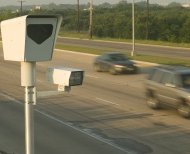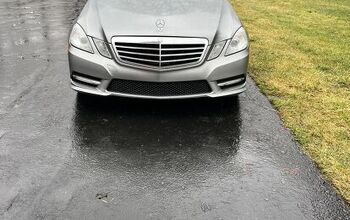Redflex Reports Drop in US Traffic Camera Revenue
Opponents of red light cameras and speed cameras have had an impact on the bottom line of one of the world’s largest photo enforcement providers. Redflex Traffic Systems reported a “slowdown in the level of new contracts signed” that dragged the firm’s US traffic camera revenue down $2.4 million in the 2011 financial year. Redflex lost $1.5 million worth of US contracts this year.
Redflex is not alone. Competitor American Traffic Solutions (ATS) saw major setbacks in two of the country’s largest cities. Los Angeles, California canceled its contract and Houston, Texas is poised to end ticketing after residents voted last November to prohibit red light cameras.
The company blamed a number of factors for lower than expected profits. The US dollar’s parity with the Australian dollar has meant that money paid by American motorists lost 12.5 percent of its value over the course of the year as the funds were transferred to Australian accounts. Redflex also wasted $2.5 million in a failed attempt to sell itself to Macquarie Bank.
“The general slowdown in the US economy post the global financial crisis continues to make for a challenging business environment in North America,” the company reported. “This financial year, Redflex has focused its efforts on strengthening its business model through tighter contract language, more aggressive collection efforts in key markets, strengthening its information technology infrastructure to become more efficient, and focusing on new products and services for growth outside of red light and speed enforcement programs…. A ballot initiative seeking to prohibit Redflex’s photo enforcement program in Port Lavaca, Texas was blocked through litigation.”
Despite the disappointing US results, the company told investors on the Australian Securities Exchange that, overall, net profit for the year was $10 million on $140 million in automated ticketing revenue, a sharp rise from 2010’s dismal showing of $442,000 in net profit before tax. The positive overall financial result came courtesy of the Middle East where government demands drove a 51 percent increase in international business revenue. The biggest windfall came from automated ticketing machines in Saudi Arabia and orders for new cameras in Abu Dhabi.
Redflex shares currently trade at $1.76, down substantially from the $2.75 offered under the Macquarie buyout deal earlier this year.
[Courtesy: Thenewspaper.com]
More by The Newspaper
Latest Car Reviews
Read moreLatest Product Reviews
Read moreRecent Comments
- Formula m For the gas versions I like the Honda CRV. Haven’t driven the hybrids yet.
- SCE to AUX All that lift makes for an easy rollover of your $70k truck.
- SCE to AUX My son cross-shopped the RAV4 and Model Y, then bought the Y. To their surprise, they hated the RAV4.
- SCE to AUX I'm already driving the cheap EV (19 Ioniq EV).$30k MSRP in late 2018, $23k after subsidy at lease (no tax hassle)$549/year insurance$40 in electricity to drive 1000 miles/month66k miles, no range lossAffordable 16" tiresVirtually no maintenance expensesHyundai (for example) has dramatically cut prices on their EVs, so you can get a 361-mile Ioniq 6 in the high 30s right now.But ask me if I'd go to the Subaru brand if one was affordable, and the answer is no.
- David Murilee Martin, These Toyota Vans were absolute garbage. As the labor even basic service cost 400% as much as servicing a VW Vanagon or American minivan. A skilled Toyota tech would take about 2.5 hours just to change the air cleaner. Also they also broke often, as they overheated and warped the engine and boiled the automatic transmission...


































Comments
Join the conversation
Good. Instead of monitoring traffic intersections under the guise of ensuring law enforcement against the law abiding, how about putting up these cameras in every nook and cranny of the US Congress. We'll prevent far more costly illegal acts by doing that. It is time to stop treating grandma as a criminal when she drives to the supermarket for Ovaltine. She has proven over her lifetime that she is not the source of our domestic dangers. She doesn't need monitoring.
Hmmm. Let us translate. "Tighter contract language"....means that we were surprised how many Towns and Cities would be responsive to the citizens and toss us out after they got the first bunch of $camera Tickets. That does not happen in "top down" Australia or England, but the US is different. We have to now make sure the contract is airtight and the Municipality will see huge damages to us if they try to cancel. This backfires, as once Municipalities realize a $camera contract is a deal with the devil, they are less likely to get involved. "more aggressive collections"....means that in a lot of places, if you are not formally served a summons,like by a police officer, you can ignore it. Once that info gets out, waste paper cans statewide are filled. Americans don't just kowtow to government reflexively. See "Arizona" for more on this. "blocked through litigation"....means that we have to fight tooth and nail to keep these devices running, often against well organized and effective citizen groups. We got stuck spending a lot more for connected and expensive attorneys than we ever anticipated. Too bad, so sad. Here in NY, Yonkers and Nassau just put up $cameras, and already folks are organizing. NYC is like Australia, though, in that the governors and the governed are sufficiently far apart that the governors don't care and don't have to listen. That, fortunately for Americans, is the exception, not the rule.